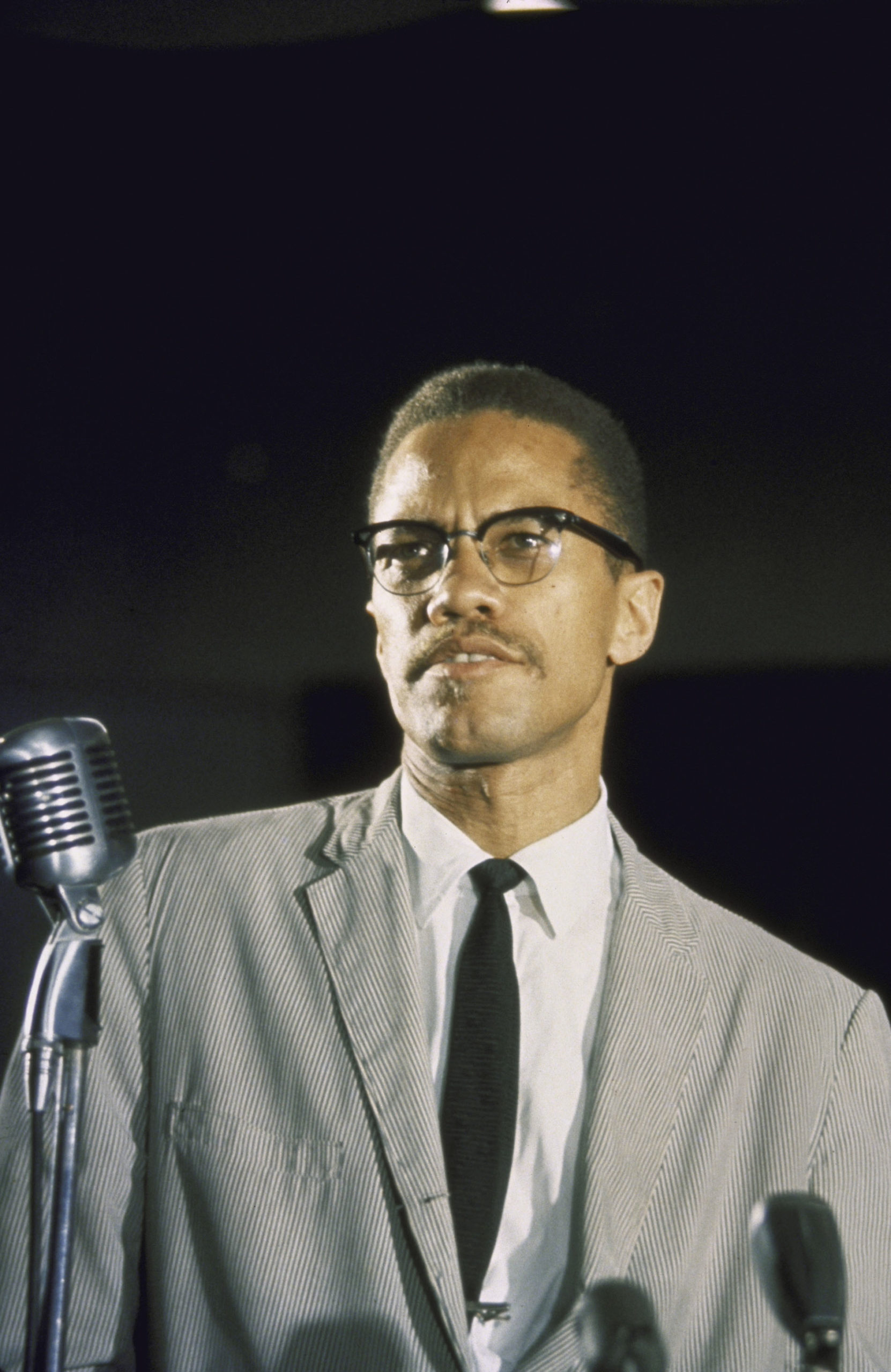
Malcolm X has traditionally been presented as a foil for Martin Luther King Jr., but let the record reflect that the Black Muslim leader’s work was much greater than a limiting comparison. Through impassioned speeches, and tireless effort, the civil rights activist shared ideas on Black nationalism and how the rights of Black people were being pilfered, if granted at all. To reduce Malcolm X’s legacy to that of half of a whole, is to restrict the impact that he had, and the how his mindset was changing before he was killed.
The stark difference in the ways Dr. King and Malcolm X are thought about concerns how ideas of their goals were altered after their deaths. “[H]istory has freeze-framed [Malcolm X] as the angry black separatist who saw whites as blue-eyed devils,” wrote CNN in 2010. The ideological shift —specifically how he came to believe that international allyship under Allah was possible, while still acknowledging racial strife in America—Malcolm X enacted in his later years is ignored.
“Today, on #MalcolmX’s 95th birthday, I want to share that: He and my father, MLK, were not enemies,” wrote Bernice King, the youngest daughter of Martin Luther King, Jr. and Coretta Scott-King. Her first point silenced 50 years worth of loud whispers that her father and Malcolm X were enemies, and the remainder of the details listed supported it. But where does the understanding of King and Malcolm as enemies come from? Schooling and dualism.
As a child, Black History Month was hell for me, in the sense that the same simple stories and inaccuracies were repeated on loop, year after year. We learned, and relearned, about George Washington Carver and fictional accounts of how he invented peanut butter. We learned about quotes that Harriet Tubman didn’t say. We were also presented with the life stories of King, and later, Malcolm X, and exposed to the perceived chasm in their methodology to attain basic rights for Black people. Dr. King was usually the preference, and for too long, I didn’t understand why. In fact, I didn’t question it at all.
Dr. King was non-violent and therefore “good.” Malcolm X was portrayed as harsh, and his “by any means necessary” stance made him “bad.” This simplistic rendering of both men deals with racism and power—since Martin Luther King’s legacy has been sanitized over the years and his boundary-pushing beliefs are muted for white audiences, he has become a preference for conservatives.
The idea of dualism is deeply ingrained in human consciousness. We understand through comparison; good and evil, yin and yang. The problem with the separation of Dr. King and Malcolm X’s missions is that they weren’t opposites. They were two leaders committed to justice for Black people. The suggestion that he and Dr. King were misaligned, especially in their final years, is simply not true.
CNN’s analysis of Malcolm X and Dr. King reveals that the two were evolving when they were assassinated in 1965 and 1968, respectively. Though Dr. King was indeed devoted to non-violence, he pushed for more radical measures to be taken to assure Black people could have a better experience in America, such as economic justice. While, as explained, Malcolm X embarked on a 1964 trip to Mecca—where he changed his name to el-Hajj Malik el-Shabazz— that showed him a different side of white people than what he had experienced, and had been taught by the Nation of Islam. Both men were expanding, and shifting away from the larger-than-life stereotypes they’d been subjected to.
Malcolm X was his own man with his own journey, as was Dr. King. He revolutionized how Black people understand themselves, and was unafraid to publicly transform. The way he is remembered has become bound to the work of Dr. King, simply because of human nature and misinformation. But Malcolm X grew and pushed the limits of his narrative, and we must honor that.
Photo credit: Getty Images